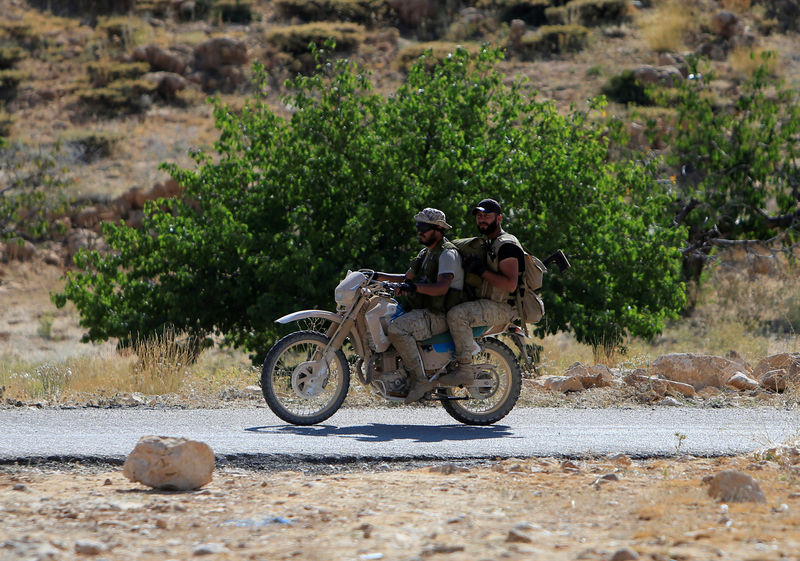BEIRUT (Reuters) - The transfer of thousands of Syrian militants and refugees from a Lebanese border region into rebel territory in Syria stalled for a second day on Tuesday because Beirut rejected demands made by the militants, a Lebanese official told Reuters.
A security source said those demands included the release of prisoners held in a Lebanese jail and safe passage out of the country for some people wanted by the Lebanese state including militants in the Ain el-Hilweh Palestinian refugee camp.
The source also said on Tuesday evening that the coming hours would be "decisive".
Last week, Lebanese militia Hezbollah took most of the mountainous border area, called Jroud Arsal, in a joint offensive with the Syrian army to drive Nusra Front militants from the area, which straddles the border.
Hezbollah's role in Syria's conflict has been criticised by its Lebanese political opponents, including Prime Minister Saad al-Hariri. Hariri has said refugee returns from Lebanon to Syria should be coordinated only through the United Nations.
The ceasefire deal reached on Thursday included the release of Hezbollah prisoners held by the Nusra Front in Syria and the transfer of thousands of refugees back into Syria.
Convoys of buses had arrived from Syria on Monday and Tuesday to collect thousands of fighters, their relatives and refugees from northeast Lebanon as part of the deal, but they still had not begun to move as night fell on Tuesday.
"(The Nusra Front's) demands regarding the exchange agreement have been rejected by us and we consider them an obstacle. It was this which delayed the implementation of the second phase of the agreement today," the official, Major General Abbas Ibrahim, head of Lebanon's General Security, said.
About 9,000 people are expected to be transferred and go to Syria's rebel-held Idlib province, a Hezbollah media unit said.
Lebanese television station al-Mayadeen said Nusra Front militants were demanding the release of a fifth prisoner being held by Beirut and accused of killing Lebanese soldiers. Beirut and Hezbollah had refused, Al-Mayadeen reported, citing sources.
On Tuesday, Nusra Front's leader in the Syrian Qalamoun mountain region told the Kuwaiti newspaper al-Rai the deal includes the release of five of its Syrian members being held by Hezbollah and five more being held in a Lebanese prison.
Abu Malek al-Talli told al-Rai implementation of the agreement was being held up by disagreements between Hezbollah and the Lebanese government.
The Nusra Front was al Qaeda's Syria branch until it severed ties last year. It now spearheads the Tahrir al-Sham Islamist alliance in the Syrian conflict.
The Lebanese army, which receives considerable U.S. and British military support, did not take an active part in the Jroud Arsal operation, setting up defensive positions around the town of Arsal.
Lebanon hosts nearly 1.5 million refugees - about a quarter of its population. Most live in severe poverty and several thousand are in makeshift camps east of Arsal in a barren mountainous region.

The multi-sided Syrian conflict has killed hundreds of thousands of people and driven at least 11 million from their homes - about half Syria's pre-war population.